It is interesting because we happened to arrive to Accra on Independence Day, and were able to celebrate the prime minister, Nkrumah's, declaration of the former Gold Coast colony as an independent nation on the 6 March 1957. We watch the independence parade that morning on television.
In the afternoon Fred gives us a driving tour of the different parts of Accra, first hitting the rough spots and then the not so rough places. We see the neighborhood of Teshie, an informal community, which sprang up without planning. Frederick works for the Town and Country Planning Department in Accra, so it is interesting to see the city through his perspective. He explains the challenges of providing adequate plumbing, sanitation, and electricity infrastructure in these types of settlements. The lack of infrastructure also has an effect on the city's density, which does not support high rises. He says that the tallest building in Accra is about 15 stories. Most of the unplanned settlements are single or two story houses. After Teshie we drive through a military zone and then pass the independence square where the ceremony has already ended. We stop at the Kwame Nkrumah Memorial Park. In the middle of the park stands a tomb where Nkrumah has been buried. In front of the tomb is the podium where Nkrumah officially declared the independence of Ghana. This podium is still accessible and many people stand on the podium themselves to take a picture. We are invited to join the picture of another group. It is not difficult to make friends in Ghana! We also visit the museum. After this we continue our trip to Alajo, one of our sites of focus. From Alajo we drive to Dzorwulu which is the richer and more expensive part of Accra.
During this trip Fred gives us some insight into the city's problems and how they occur. The problem of flooding in Accra has different actors and agents. The rivers through Accra are losing space to people who are building along them, in the flood prone riverbanks. It is a complex situation that we are just beginning to grasp.
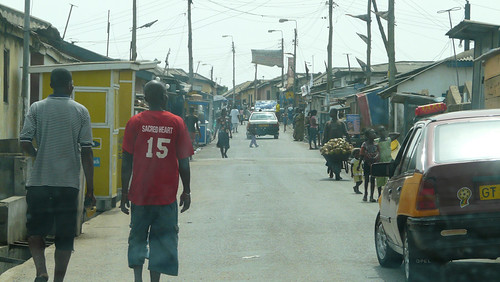
Teshie.
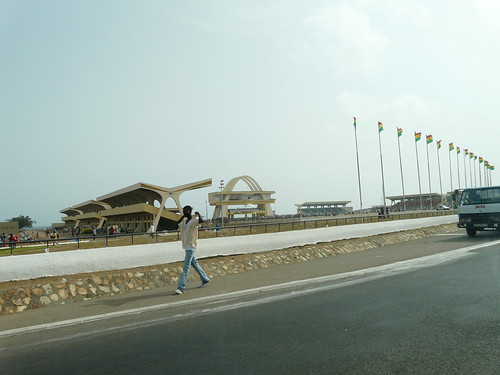
Independence square.
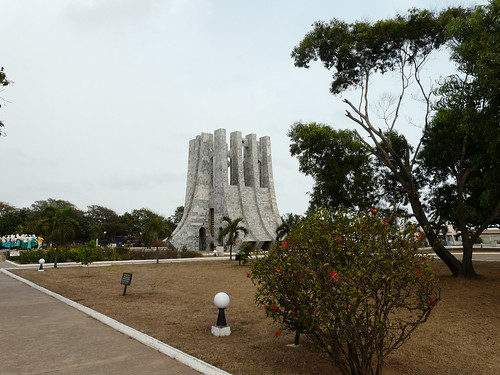
Kwame Nkrumah Memorial Park
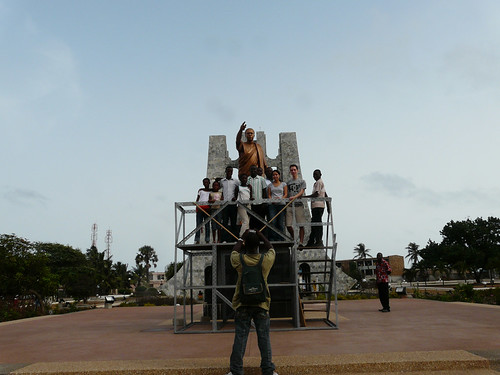
Podium in front of the tomb.
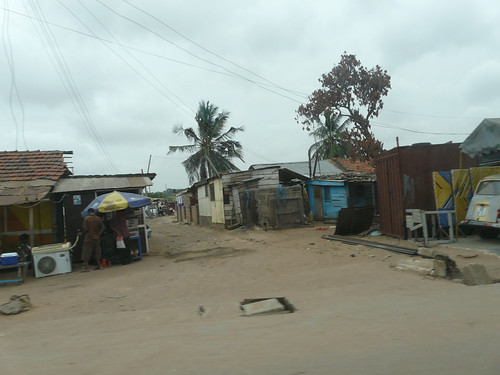
Alajo


Looks like Niemeyer...
ReplyDeleteTeshie is now bigger than it looks in the pictures, can you please put on some new pictures.
ReplyDeleteHello Naa, We are not in Ghana anymore so are not able to make some new pics.
ReplyDelete